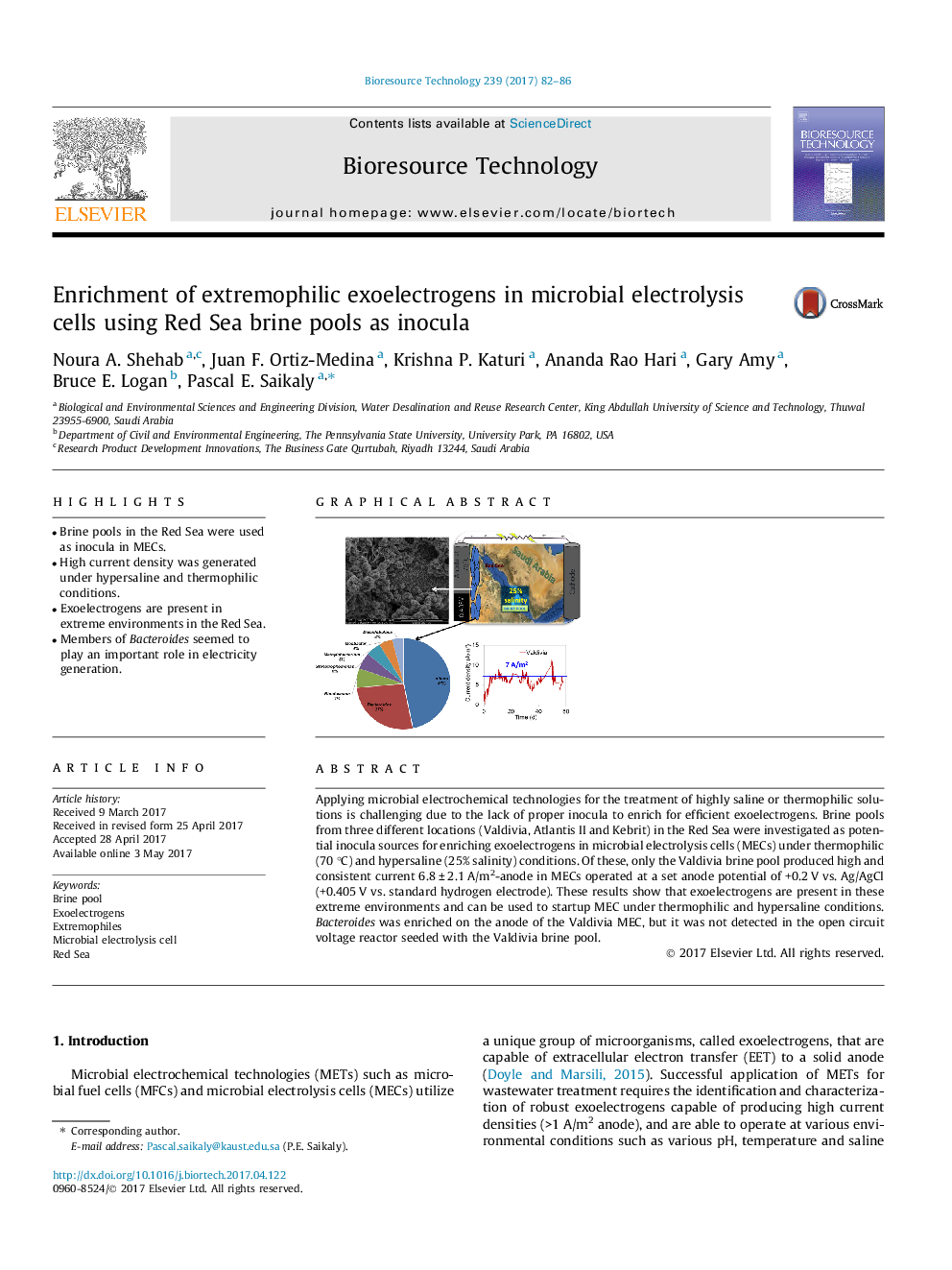| کد مقاله | کد نشریه | سال انتشار | مقاله انگلیسی | نسخه تمام متن |
|---|---|---|---|---|
| 4997153 | 1459904 | 2017 | 5 صفحه PDF | دانلود رایگان |
- Brine pools in the Red Sea were used as inocula in MECs.
- High current density was generated under hypersaline and thermophilic conditions.
- Exoelectrogens are present in extreme environments in the Red Sea.
- Members of Bacteroides seemed to play an important role in electricity generation.
Applying microbial electrochemical technologies for the treatment of highly saline or thermophilic solutions is challenging due to the lack of proper inocula to enrich for efficient exoelectrogens. Brine pools from three different locations (Valdivia, Atlantis II and Kebrit) in the Red Sea were investigated as potential inocula sources for enriching exoelectrogens in microbial electrolysis cells (MECs) under thermophilic (70 °C) and hypersaline (25% salinity) conditions. Of these, only the Valdivia brine pool produced high and consistent current 6.8 ± 2.1 A/m2-anode in MECs operated at a set anode potential of +0.2 V vs. Ag/AgCl (+0.405 V vs. standard hydrogen electrode). These results show that exoelectrogens are present in these extreme environments and can be used to startup MEC under thermophilic and hypersaline conditions. Bacteroides was enriched on the anode of the Valdivia MEC, but it was not detected in the open circuit voltage reactor seeded with the Valdivia brine pool.
180
Journal: Bioresource Technology - Volume 239, September 2017, Pages 82-86
